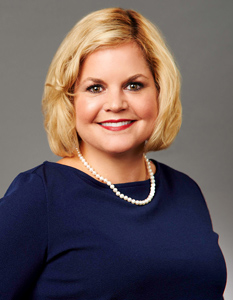We all want the best medical care for our children, and a crucial part of obtaining proper care is finding a doctor who is knowledgeable, experienced and compassionate. Partnering with the right doctor is especially important for children with special needs, who often require more frequent doctor visits and a higher level of medical attention.

Amy Kelly
Director of Family and Community Services
My 17-year-old daughter, Annie, has been to dozens of doctors and specialists because she has autism spectrum disorder and a few other mental health diagnoses. When she was diagnosed before she turned two years old, I immediately knew I needed to find a good doctor. But more than that, I quickly learned that I needed to work closely with our pediatrician to make the most of Annie’s appointments and her overall care.
Below are four tips to help you partner with your child’s doctor:
- Come prepared with a list of questions and concerns. There can be so many issues and worries to address when you learn your child has special needs that it can sometimes be overwhelming. I always kept a folder with Annie’s medical information, any new test results or recommendations, and a sticky pad full of questions I compiled since the prior appointment. I brought this folder to each doctor visit. Being prepared allowed me to fill the doctor in on Annie’s most recent therapies and medical concerns and gave me the opportunity to ask specific questions I had been saving up for that visit.
- Get to know the office staff. The nurses, physician assistants and administrators at your doctor’s office are incredibly important people. Take time to get to know them – and vice versa. They can make a significant difference in the quality of the appointment. For example, I would send a holiday card to our doctor’s office every year with a note from our family. Sometimes, I’d even drop by with a fruit basket or something unexpected to say, “thank you.” In my experience, these gestures go a long way.
- Take one or two “test runs.” Even at a very young age, Annie knew when we were going to the doctor. She would begin to cry and tantrum when we turned onto the street where the doctor’s office was located. She had a lot of anxiety, which quickly turned into my own anxiety. So, we worked with our pediatrician to “plan” Annie’s visits. At the start of the appointment, Annie would sit in the waiting room for a few minutes and be called back to a room. The doctor would pop by and say “Hi,” and then Annie would get a small prize. The next visit, we extended the wait, and she let the doctor listen to her heart and check her ears. Then, Annie got another prize. Over time, Annie realized her doctor was kind – not someone to be feared. Today, Annie feels very comfortable with her doctor. In fact, she will even ask him to check her ears!
- Speak up if you aren’t sure of something. True partnership means both the parents and the doctor feel free to ask important questions. This means two things: giving truthful and complete answers to the doctor and feeling comfortable to ask your doctor questions. This open and honest collaboration allows the doctor and caregiver to make appropriate medical decisions together, without feeling judged or worried about repercussions.
Partnering with your children’s doctor is essential to making sure your kids receive the attentive, informed and comprehensive care they deserve. By investing time in that relationship, you and your doctor (together) will help your child to thrive.
About Amy Kelly
Amy Kelly is the mother to Danny, Annie and Ryan. Annie is diagnosed with moderate to severe autism, verbal apraxia, intellectual and developmental disabilities and general anxiety disorder. Amy is the Director of Family/Community Services for Devereux Advanced Behavioral Health, one of the nation’s oldest and largest nonprofit providers of behavioral healthcare, and serves as a family representative on several special needs boards in the community, locally and nationally. In addition, she participates with other patients and families in efforts supported by the American Board of Pediatrics Foundation and the Autism Speaks Autism Treatment Network to address children with special needs and the importance of quality care.
To learn more about Devereux Advanced Behavioral Health, visit www.devereux.org. To learn more about Devereux’s autism programs and services, visit www.devereux.org/autism.



